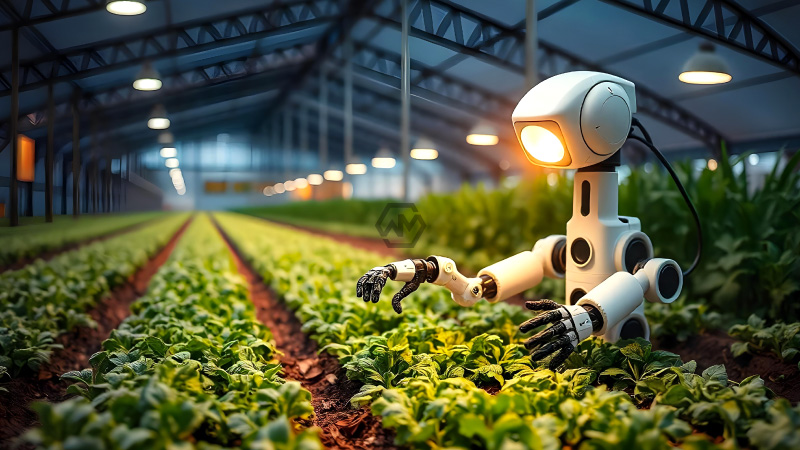- Precision sensors and robotics will empower farmers, improving decision-making.
- Affordability and open-access data are key to wide adoption of these technologies.
- Collaboration and shared resources will drive more sustainable, efficient farming practices.
Steven Mirsky envisions a future where farmers of all sizes have access to smart technologies like sensors and robots to improve crop management.
These tools aim to reduce costs, boost profits, and enhance sustainability by allowing for more precise decisions on the farm. While large-scale operations have embraced such technologies, Mirsky stresses the need for making them affordable and accessible to smaller farms.
Revolutionizing Agriculture: How Robotics and Sensors Can Transform Farming
The real challenge lies in the cost of collecting the necessary data and developing reliable models for these technologies. Once these hurdles are overcome, precision farming technologies become scale-neutral, meaning they can be applied across farms of any size. Mirsky advocates for open-access agricultural data to ensure that all farmers can benefit from these advancements, creating a more resilient and efficient agricultural system.
While many farms already use technologies like yield mapping and temperature monitoring, the widespread adoption of precision farming still faces barriers. The high initial cost and the need for consistent performance make it challenging for smaller farms to integrate these innovations. Mirsky’s research aims to make these technologies more accessible by focusing on shared data and open access to agricultural resources.
Another challenge is the need for a large-scale database to train models that can interpret sensor data accurately. Mirsky envisions an open-access, public database, similar to those used by NASA and NOAA, which would allow farmers to benefit from a wealth of shared information. By providing resources for the collection and interpretation of data, such initiatives could help democratize precision farming technologies.
Mirsky also highlights the need for more cooperation within the agricultural sector, urging farmers, researchers, and the public sector to move away from data silos. He believes that working together to share knowledge and resources will ensure the sustainable growth of farming practices, ultimately supporting global food security in the face of challenges like climate change.
In the coming years, the collaboration between technology developers, researchers, and farmers will be crucial in shaping the future of agriculture. By making precision technologies accessible to all, agriculture can become more resilient, efficient, and sustainable.
“The digital farming revolution is bringing the many eyes and, as a result, the intelligence, back to farmers.”



